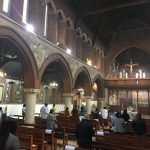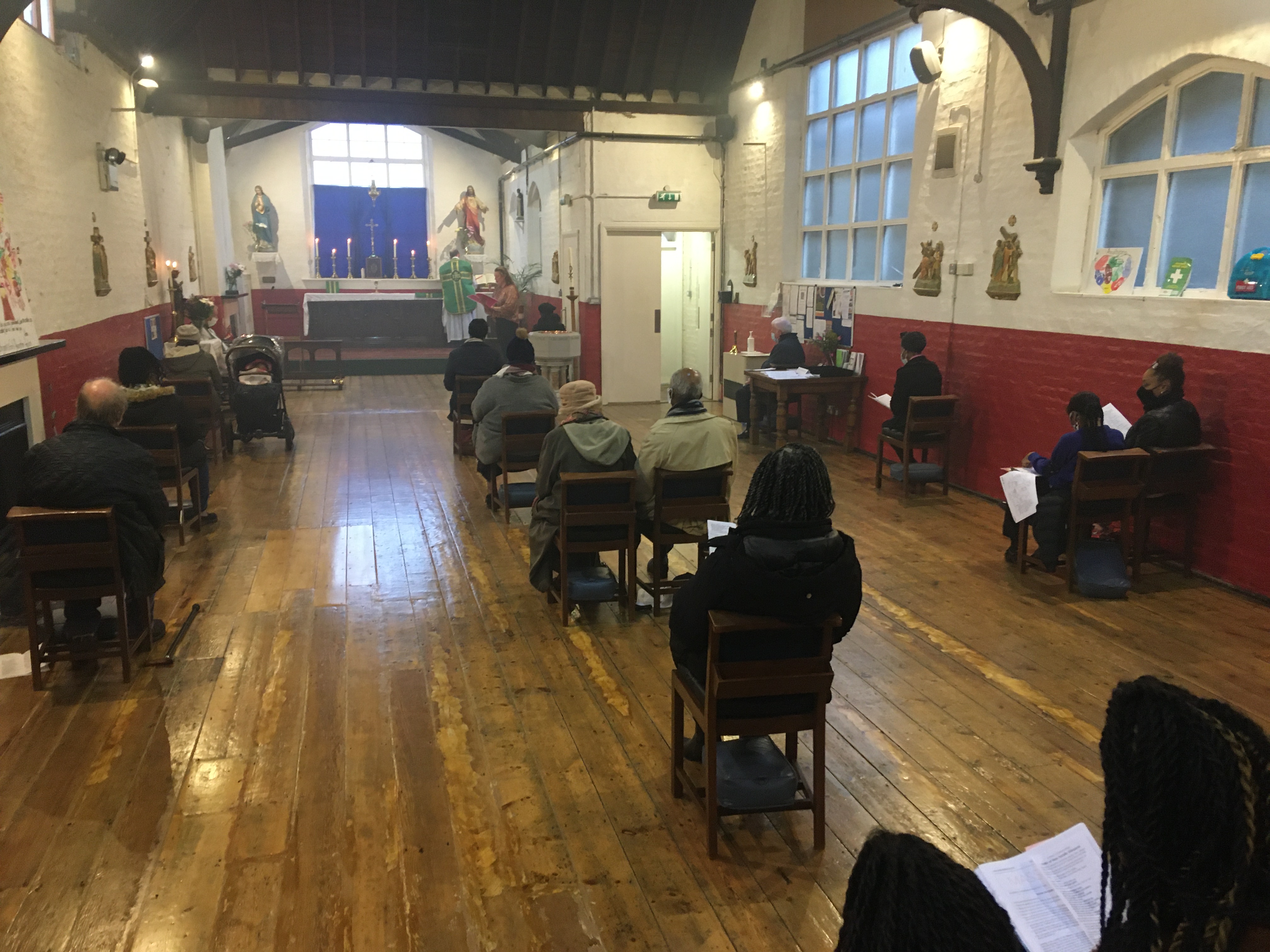Palm Sunday ~ GSC, 5 Apr 2020
In Istanbul, the capital of Turkey, there are three bridges that span the continents of Europe and Asia. You could literally run from one end of the bridge to the other and be in different continents, which is rather cool if you’re excited by that sort of thing. I did this once very many years - not literally running, I think - and indeed I was with Fr Beer at the time if memory serves me correctly. Today the final instalment of our sermon series on Global Christianity, we turn to Asia.
Asia is significant in that it is the continent where Christianity began, and indeed where all of the world’s religions began. The continent embraces Palestine, parts of Turkey and then off to Russia and down to India and China. This city, Istanbul, was formerly known as Constantinople, named after the Emperor Constantine, who as the Emperor of the Roman Empire, converted to Christianity in the fourth century and thus the relationship between the Church and the State was altered for ever, but more of that a bit later. Constantinople or Istanbul continues to be important because it is the seat of the Ecumenical Patriarch, Bartholomew, who is head of the Orthodox Church a bit like the Pope is the head of the Catholic Church and the Archbishop of Canterbury is head of the Anglican Communion: I emphasise the phrase “a bit” though because there are lots of differences between the notions of authority exercised by these different bishops. When we go to churches in this country and others we may see great iconostases in the Church, decorative walls separating the people from the space where the priests offer the worship. Those are Orthodox Churches and most of these look to the Ecumenical Patriarch as the source of unity.
As we look at Asia, I wanted to think of the relationship between the Church and the State. When I use the word “State” in this context I mean all those organisms of Government and the culture of the country that we live in: the Head of State, the TV, assumptions around funerals and beginning and end of life and the moral basis of laws. On this continent of Asia we see one of the most complex and well-known places on earth where there is a tricky relationship between the Church and the State, namely China.
The interplay between the Church and the State is something we in this country are often aware of to some degree. We know the Queen is head of state and supreme Governor of the Church of England, that the appointment of bishops in the Church of England is made on her behalf by the Prime Minister, that when the Queen opens Parliament and delivers the Gracious Address, she prays Almighty God bless the deliberations of Parliament. We might expect a Church of England priest to go in to non-Church schools, as we try to do in our local community schools as much as possible. We would expect the worship on the BBC to be largely Christian, if not always very Christian! We live in a country where there is a theoretically close relationship between Church and State.
And yet, despite the presence of twenty six Church of England bishops in the House of Lords, there is no sense in which the laws of the land can be seen to be led by the teachings of the Church. Divorce and remarriage can happen however often people like; marriage has been redefined secularly so as to include that between two men and two women. The lives of those in the womb of their mother can be ended through legalised abortion. Shops can be open on Sunday. In reality, hardly any actual worship takes place in the schools of this country.
It’s not necessarily a bad thing that Church and State are separated - indeed personally I’d be in favour of disestablishing the Church of England so it lost some of its privileges within the country - but we have to be careful in how we think about our country and the relationship between the Church and the Law, not thinking that everything that is permitted under British Law is morally good because we believe ourselves to live in a Christian country. There is this variance. For the Christians writing the New Testament and receiving the letters contained therein, this was the norm, of course: the Roman Empire was not Christian and indeed was mostly openly hostile to the new religion of Christianity. Yet, still Paul urges us to pray for those in authority (I Timothy 2:2) and our Lord’s teaching to pay taxes to the State is recorded (Matthew 22:21).
Let me turn now to China. Here, a new constitution was formed in 1949 with the establishment of the People’s Republic of China. This is still enforced today. Religion is allowed to exist - though this has not always been the case - but there is a difficulty with Churches having allegiance to an institution other than the Chinese Government. This includes the importance assigned to the Pope in Rome and so there is a state-backed Catholic Church that has a very odd relationship with the Pope because the Chinese Government appoints bishops within it. We pray some resolving of this tension might be made. In our own land some nine hundred years ago St Thomas Becket and King Henry II had a similar disagreement leading to the Archbishop’s murder shortly after Christmas in 1170 in Canterbury Cathedral. Indeed, the Reformation six hundred years ago was about such issues as these.
This subject of the Church’s relationship with the State is very apt for us to consider on this Palm Sunday. We’re deprived of our Procession sadly because of the Corona Virus pandemic but we can still enter into the events that won for us our salvation. At the heart of the movement of the Procession, of Christ’s entry into the Holy City, is the coming together of two opposing powers which are going to collide head on on Thursday evening, Maundy Thursday, as on that night the Lord of all things is arrested and tried and says to the symbol of earthly power: “You would have no power over me unless it had been given you from above,” (John 19:11).
Often it is asked, why did people want to kill Jesus? The label placed on the Cross, which read “This is the King of Jews” and the question Pilate asked in today’s Gospel, “Are you the King of Jews?” goes to show they clearly thought he was an insurrectionist, a political opponent and a threat to the stability of the political order. Jesus continues today to be a threat to the way things are done by those with power. Remember Mary’s song, sung each day at Evening Prayer, “He casts the mighty from their thrones and raises the lowly.” We and they together need to watch the events of this Holy Week and to participate in them that we might follow the example of the King of Heaven, who humbled Himself, even to the point of death, death on a Cross.

